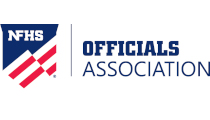A Veteran's Tips on Officiating Basketball
By By Benton “Chick” Smith on January 08, 2015 officials PrintOfficiating high school basketball is unquestionably the most challenging, demanding but rewarding high school sport to officiate. You are expected to be perfect in your first game and then get better after that. In what other high school sport are the coaches, players and fans so close to the action and people more attuned to the rules (or at least they think they are) than in basketball? Every call is scrutinized by someone.
In New Hampshire, there are 400 active officials all vying for a competitive schedule. Because the competition for games, both during the regular season and the tournament, is so keen, it is critical for every basketball officials organization to do everything that it can to create an evaluation system that easily understood and allows the official to have some ability to influence his or her rating and not rely solely on others for the rating. Officials may not be happy with the result but at least they will understand how it was determined.
In addition to an evaluation system, there are other considerations within the control of the official. The use of proper NFHS mechanics is totally controlled by the official, but how many times have we seen officials used improper signals? Physical conditioning is also under the control of the official. What should an official do during the season and off season to assure that he or she is in the best possible condition to keep up with the play? What type of attitude is displayed? Do officials bring the same level of enthusiasm and commitment to a lower level game as they would to a state championship game? Do they arrive at the game site professionally dressed and in plenty of time and make themselves known to the game administrators? Remember, to those playing in any game, that is the most important game at that particular time and officials have an obligation to give it their very best effort. All of these items are within the direct control of the official.
The questions are often asked: What separates the good official from the very good official? There certainly is no magic formula or specific qualities that separate the two, but here are a few observations that may help officials answer the question.
Are you confident without being arrogant?
Are you consistent on both ends of the floor for the entire game?
Do you respect the coaches and players and, therefore, garner their respect?
Are you an integral and indispensable part of the game while not being recognized as such?
Do you officiate the game and not the score?
Finally and most importantly, do you use common sense?
A well respected athletic director relayed a story about an ugly incident that occurred in one of his games that he felt could have easily been avoided had the officials used common sense. He is convinced that this is what separates the good officials from the very best officials. Everyone knows (or at least should) the rules of the game, but faced with a potentially ugly situation, how does the official react? Is he or she able to diffuse the situation with minimal impact on the game or does it become something more than it needs to be? Dealing with these types of situations cannot be taught but is learned through experience.
Finally, coaches may not like all the calls made, but they are less apt to be upset or disagree if the official is in proper position to make the call. When officials are not in proper position, the more problems arise. Being out of position can lead to one of the hardest questions that an official needs to answer: When is the right time to give up officiating? It becomes part of the person and to admit that he or she is slowing down or unable to keep up with the play is very, very difficult. On the other hand, officials do a disservice to the athletes if unable to keep up. Some officials recognize this and retire at an appropriate time but others do not. Often, other officials may recognize this but are unwilling to approach their fellow officials and discuss that it may be time to hang it up. It is unfortunate for an official who has had an outstanding career being seen as one who has stayed around too long. Shannon Sharpe, an NFL commentator, was interviewing Ray Lewis a few years ago and they were discussing retirement and when was the right time to retire. Sharpe’s advice to Lewis was simple, “It is far better to retire a year too early than a year to late.” Enough said!!!
By Benton “Chick” Smith
Benton “Chick” Smith has been a basketball official since 1978 in New Hampshire. He is currently serving as the supervisor of basketball officials for the state, where he has pushed to implement a stronger evaluation system and has been a strong proponent of officials education.
Most Recent Articles
- nfhs news NFHS Learning Center Delivers 25 Millionth Course
- Track & Field/Cross Country article Effective Communication with Athletes and Coaches
- nfhs news Player Equipment Changes Highlight 2025 High School Football Rules Revisions
- Player Equipment Changes Highlight 2025 High School Football Rules Revisions
- nfhs news Judgment Call on Second Contact Eliminated in High School Volleyball






